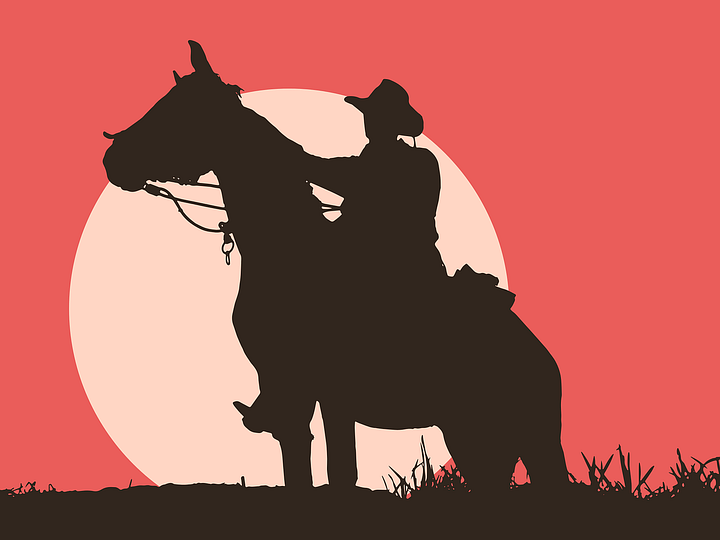“You don’t start out writing good stuff. You start out writing crap and thinking it’s good stuff, and then gradually you get better at it.”
That’s why I say one of the most valuable traits is persistence.”
― Octavia E. Butler
Taking the Plunge
Being a writer is a confusing path to take in life. To choose this path, to know that to write is a deep urge in your soul, and to want to create something beautiful, stunning, moving or simply informative for others to read, can be a soul wrenching experience.

I’ve been an artist all of my life. It hasn’t only allowed me to develop my creative side, and probably, it has developed at the cost of losing any academic side to my life, it has given me the curiosity that cats have — especially those cats that stay out on the rooftops at night.
I went from being a painter for many years and loving every step of the way to becoming a writer and using photography as my visual tool. I dedicated myself to the work, and avoided following others and the stereo-type path that leads to disappointment for many.
The Expanding World of a Writer
Writing allows the mind to be more expansive about how we treat a subject that interests us. Painting was always coming to a stop, naturally, painting objects is about capturing the moment, interpreting the light and colour of a snatch of time in existence. Or, just a thing that someone is doing.
A painter must be satisfied with focusing on the single idea and digging deeply into it.
Writing allows us to delve deeply into a subject and investigate it. That investigation can take twenty minutes and we have enough to know what we want to say about an idea. Or it can cause us to become research junkies who love the chase. There are many writers who admit to being caught up in research and have forgotten, that really, they were going to write a novel.
Writing a story or an article is like going on a journey. Your article could turn into a manifesto and your short story could demand to become a novel. You just can’t say when you start out.
Mysteries of Discovery
Research is like opening up a box that you found under the bed, long forgotten and covered in dust. It’s so alluring.
Beginning to find out about a subject seems new and fresh, so the mind is enthusiastic and keen. Often, if you think about it, we won’t really investigate what we don’t know, we are drawn to things that are similar to what we do already know.
We often have foreknowledge of our subject for investigation. The thing that we want to write about. The idea must have come from somewhere in us to want to become important in our lives.
In writing, there is a lot of Unconscious Activity.
Writing a novel, a short story or anything that may be worth reading is a matter of trying to see it from an angle that we haven’t yet thought of. The keenness that we feel at the beginning of writing comes from the possibilities involved in finding that angle and presenting the subject anew to readers.
Therefore, it becomes a challenge.
Once we begin to write we are already on the path that tests our knowledge of the subject. A story writer will often be writing about human beings who have done something great, interesting, or terrible. The mistakes that people make are good fodder for novels. People who fall in love with the wrong person, or manipulate another for their own benefit are prime beef for stories.
Stories are about the human condition and all its faults and fortunes.
Writing about people makes for good reflection about life for the reader.
The writer, however, is now tasked with the overwhelming job of making sense of her research and ordering the events of a promising story-like-thing into something to be enjoyed by readers.
It’s often at this point that we think we need more research, or just a cup of coffee and time to think about our story.
The internet is full of questions and answers about so called, “writer’s block”, that great excuse for not being able to continue working on the project.
If you consider the fact that there is no other profession or activity where a person is mentally blocked from continuing on with the job like in writing.
Funny thing, journalists don’t get writer’s block.
Computer programmers don’t get blocked, either.
Just writers.

The only time that I’ve believed in writer’s block is when I heard of a writer who was normally very prolific. It turned out that he hadn’t written in months. Not only could he not bear to sit at the keyboard, he also stayed home, avoiding people and places. finally he visited a doctor who diagnosed him with burn-out which caused his lacklustre view of life — obviously, in this condition people will not be motivated to do anything.
Personal Determination and Perseverance
The problem of stopping writing has a lot to do with personal conviction. How determined are we? How clear are our thoughts on what we are doing?
Difficulties in continuing to write stem from the discovery that what we are writing about is a very broad and deep subject — life itself. Try not writing about life, you won’t get far.
Most of us writing on the internet are attempting to convey a message to other people. Strangers, and some not so strange.
The ability to formulate words into readable sentences that have a sense of meaning in them, is a task and a half for most people. Some people write and don’t see that their words are a jumbled mess. That happens.
The initial quote in this article states that we all write crap, and that’s true of any writer worth their salt. But what separates the wheat from the chaff is the ability to recognise the crap and sift through to find the meaningful bits and pieces that we have managed to write into our crap. Many people give up and throw all of it into the nearest waste paper bin before giving themselves a chance to develop the right skills.
Having the very human ability to think about things and control the situation enough to avoid tumbling into the dark land of disappointment is a requisite of, not just writers, all of us who enter into the arena of accomplishment.
Fear of Failure and Mediocrity
Being a writer is not about living in fear of writer’s block striking like lightning, it is an activity that needs determination and courage to succeed.

Quitting the task means to choose something easier — and I think, that could be a slippery slope into looking for an easy life that is unrewarding. And who in their right mind would want that. We only live once. Allow the crap to pile up and recognise that as time passes a writer becomes adept at not only sifting through the pile of rubbish that he or she has written, but becomes pretty damned good at stopping, then starting again each time they see that they are going down the wrong writing track.
When we write, we develop skills that only writers need. We begin to see the balance of a sentence in an abstract way, we can juggle thoughts, play with words and replace them with better ones, and we can feel that things are actually growing with our ability to avoid crappy writing. Strangely, there are many aspects of a writer’s skill which are difficult to put into words, that’s why there are so many books, with so many different opinions about writing in them.

Writing a novel, an article or a quick post for a web site, requires the same skills. Those skills are earned through hard work and not giving up. The not giving up bit also indicates that when we have obtained something of those skills we should continue to hone them, and not sit back in the saddle and believe that we have arrived.
Leave a Reply
You must be logged in to post a comment.